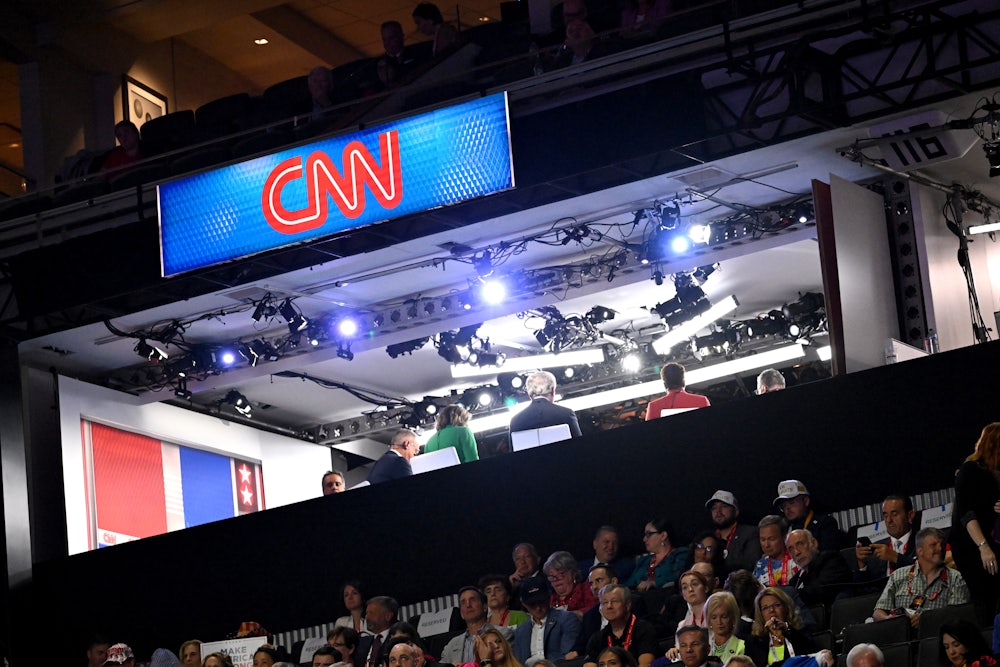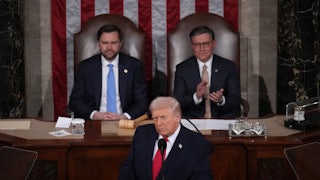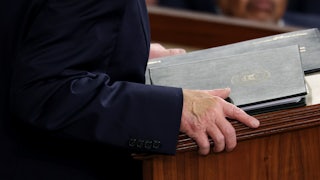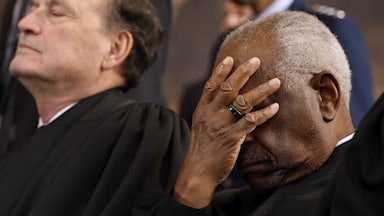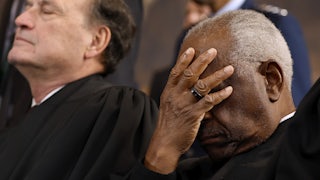CNN’s recent “undecided voter” panel, meant to capture reactions to Kamala Harris’s speech at the 2024 Democratic National Convention, has morphed into a full-blown media debacle. What should have been a straightforward segment has instead unleashed a flood of questions about voter representation, journalistic integrity, and the blurry line between informing the public and potentially pulling a fast one on viewers.
At the center of this is Bryant Rosado, introduced by CNN as an undecided voter who, after hearing Harris speak, suddenly declared he was Team Trump. Plot twist: MeidasTouch dug up Rosado’s social media history, revealing a long-standing love affair with all things MAGA that didn’t exactly scream “undecided voter.”
As the story gained traction, we got treated to a round of “he said, they said.” Rosado’s version of events, CNN’s on-air presentation, and the network’s official statement all seem to be pulling in different directions.
This snafu isn’t just about one voter or one segment gone awry. It’s raising questions about how big news networks handle political coverage. Are “undecided voter” panels worth the trouble? And in an age where everyone’s got a mile-long digital footprint, how do we make sure what we see on TV reflects reality?
The segment
On August 22, in Allentown, Pennsylvania, CNN’s Gary Tuchman introduced viewers to eight “undecided voters” from the Lehigh Valley. The segment, airing just after Kamala Harris’s DNC speech, was meant to capture the pulse of this crucial battleground state. Among these supposedly open-minded citizens sat Rosado, described by Tuchman as “a nice guy” in real estate.
As the panel graded Harris’s performance, Rosado stood out, giving the speech a “C” while others doled out As and Bs. His explanation? Harris wasn’t “clear enough on the policies” and he didn’t “want to personally vote for someone that is a backup.” Fair enough for an undecided voter, right?
But then came the plot twist. When asked if anyone was ready to commit, Rosado raised his hand—for Trump. Tuchman, seemingly surprised, noted that Rosado was “undecided” when they met last week.
Enter the liberal group MeidasTouch. Their dive into Rosado’s social media history revealed a trove of pro-Trump content stretching back years: retweets of Trump’s mug shot, pleas to “Bring Back Trump” on Twitter, and even an “SMH” reaction to Mike Pence refusing to overturn the 2020 election. Not exactly the social media footprint of someone struggling to pick a candidate.
As the story gained traction, Rosado took to X (formerly Twitter) with his version of events. He claimed CNN knew he was a Trump supporter all along, saying they approached him at a restaurant where he openly declared his Trump allegiance. According to Rosado, CNN asked him to “keep an open mind” and give Harris a chance.
This should go without saying, but if you’re looking for “undecided voters,” you should probably exclude someone who outright states he’s a supporter of one of the candidates rather than asking him if he’s willing to “keep an open mind” about the other candidate.
CNN, caught in the cross fire, issued a statement to me that only muddied the waters further. Asked if there was anything about Rosado’s version of events that they dispute, a CNN spokesperson wrote back:
“When building the panel of voters who haven’t decided on a candidate, all participants made it clear that they indeed hadn’t made a final determination. This particular individual, who said he had supported Donald Trump in the past, expressed to us that after President Biden dropped out of the race, his mind became open, and he hadn’t made a final decision on a candidate.”
CNN also pointed me to this tweet of Rosado’s, sent after the backlash began: “I definitely wasn’t voting for Biden… but I do like Kamala I just feel she needs to say more something that sticks not just because she’s a woman and she’s black I should vote for her…I have a choice.”
So, we’re left with three conflicting narratives: CNN’s on-air presentation of Rosado as undecided, Rosado’s claim of upfront Trump support, and CNN’s post-facto explanation of a voter who hadn’t yet made up his mind. I want to be clear that I don’t believe Rosado did anything wrong. It was CNN’s job to make sure its group of “undecided voters” were as advertised. It’s a mess that leaves us wondering: Did CNN cross an ethical line? Or is this simply a case of miscommunication blown out of proportion?
The pattern
The Rosado incident isn’t an isolated case of questionable representation in CNN’s voter panels. In fact, it appears to be part of a troubling pattern stretching back years.
In December 2015, CNN aired a focus group of supposed Trump supporters, featuring a woman named Susan DeLemus. Her unhinged rant about President Obama went viral, but CNN failed to disclose a crucial detail: DeLemus was a sitting New Hampshire State Representative, having served two terms as a Republican. This detail makes it clear that she wasn’t just your average Republican voter, but that fact was left out of the segment.
This wasn’t even the first time CNN had featured DeLemus without proper context. In July of the same year, she appeared in another Trump-focused focus group, again presented as just an average voter rather than a birther who once tried to keep Obama off the New Hampshire ballot.
In September 2018, during the Brett Kavanaugh confirmation hearings, CNN’s Anderson Cooper 360 featured five “conservative women from Florida” discussing sexual assault allegations against Kavanaugh. Their dismissive attitudes shocked viewers, but journalist James Surowiecki soon revealed that at least three of these women were GOP political operatives or former Republican candidates.
Now, in 2024, we have the Rosado case.
This pattern raises some questions:
- Is CNN deliberately misrepresenting its voter focus groups?
- How much can viewers trust these focus groups and voter panels?
- Is the network prioritizing sensationalism over accurate representation?
- What effect does this have on public discourse and voter perceptions?
CNN’s repeated failures to properly vet or disclose participants’ backgrounds suggest a systemic issue in their approach to focus groups and how they’re presented. It’s not just about honest mistakes; it’s about a potential willingness to mislead viewers for the sake of compelling television.
The Rosado case must be viewed not as an isolated incident, but as the latest in a series of misrepresentations that demand accountability and substantive change in how news networks construct these focus groups. The question is: Will CNN finally address this issue, or will we be having this same conversation again in another election cycle?
